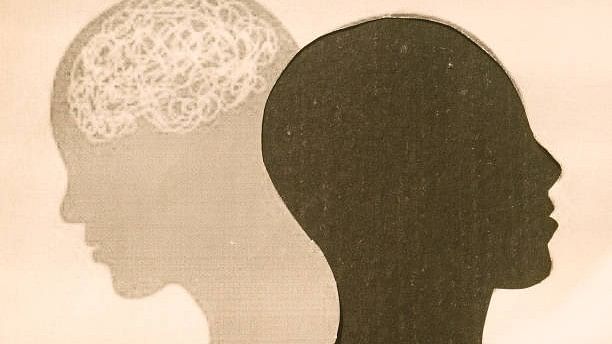
Image for representation.
Credit: iStock Photo
"I never thought these discussions would be so liberating...I am feeling much lighter now,” a student shared after we had completed a few classes in the course that takes a public health approach to mental health. “I always blamed myself for my panic attacks. I felt like I couldn’t control my emotions and wasn’t trying hard enough to make my mind function properly. Now I realise that I shouldn’t label myself as ‘abnormal,’ and I am not solely responsible for what I am going through. I am blaming myself less.”
So far, I viewed the public health approach as broadening our perspectives by situating mental health within a social framework. It helps us understand how one’s life experiences, deeply shaped by one’s social context, contribute to mental health. It highlights the role of social stressors and inequalities in creating and sustaining mental health disparities.
This contrasts with the biomedical model, which reduces mental health to a set of labels and symptoms without asking important questions like, “Who am I labelling? Where does this person come from?” Hearing someone with lived experiences of mental health challenges made me realise that the biomedical model may not only be narrow and reductionist but also overwhelmingly burdensome.
While it is important to acknowledge the progress made in psychiatry—through newer medications and diagnostic methods that have helped many struggling with mental health challenges—the field has historically burdened individuals by expecting them to self-discipline, opt for, pay for, and complete their medical treatment.
This singular focus on self-discipline and healthcare-seeking ‘behaviours,’ without considering factors like stigma, inter-generational trauma, social capital, and living conditions can lead to a feeling of ‘not trying hard enough,’ further intensifying self-blame. In contrast, the public health approach is more humane and just, raising vital questions pertaining to unfair social arrangements that prevent certain communities from accessing affordable healthcare and the structural barriers that make recovery difficult for some.
Furthermore, expressions of mental health challenges among diverse communities in India often don’t align with the symnptoms listed in the internationally recognised manuals like the International classification of diseases-11 (ICD-11), which originated in the West. The somatic or psychological manifestations of mental illness can be culture specific. Not finding a ‘label’ for what one experiences could be even more limiting.
Stretching the boundaries of these labels is essential and can only happen in biomedical and social paradigms engage with each other bringing the everyday expressions of mental health in the labels and diagnostic frameworks. A public health approach that engages with sociocultural norms may bring in perspectives that may not only broaden the boundaries of diagnostic labels but may also question the binaries of mental health versus illness in different cultural contexts.
A public health approach that emphaises not just detecting ‘cases’ and providing treatment but also promoting health, care, social rehabilitation, and reintegration shifts the focus from simply becoming ‘symptom-free’ to a more comprehensive concept of ‘recovery’ for people with mental illness. The World Health Organization’s 2021 report, Guidance on Community Mental Health Services: Promoting Person-Centred and Rights-Based Approaches’ defines recovery as a subjective process: “regaining full control of one’s identity and life, having hope for their life, and living a life that has meaning, whether through work, relationships, spirituality, community engagement or some or all of these.”
This approach allows individuals to exist on a continuum of mental health, where they may have a diagnosis but still experience wellbeing rather than being confined to the binary of illness versus health. This can be incredibly liberating for those whose path to mental-wellbeing is long and difficult.
While we continue to invest in scientific innovations for better biomedical treatment, we also need to develop more liberating community mental health approaches that create spaces for expressions through dialogue, art, and peer-support. We must imagine and invest in intersectoral approaches that strategise, allocate resources to improve living conditions, reduce multiple vulnerabilities that affect mental health addressing its social determinants.
These approaches should aim to improve social and working conditions, ensuring that people with mental health conditions are included and can thrive. As we face new social and environmental stressors from climate change, emerging diseases, and global sociopolitical tensions, we need a public health discourse that embraces the concepts of ‘suffering and healing,’ liberating mental health from the confines of ‘risks and cure’. A public health approach to mental health can indeed be liberating.
(The writer is Faculty at Azim Premji University, Bengaluru)